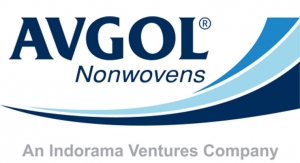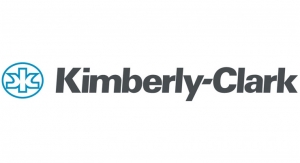Tara Olivo, associate editor06.07.21
In pursuit of its 2030 ambition to reduce the use of fossil fuel-based plastics by half before the end of the decade, Kimberly-Clark announced a partnership with the biotech company RWDC Industries to advance sustainable technology for consumer products that provides much-needed solutions to the world's single-use plastics problem.
The collaboration brings together Kimberly-Clark's deep experience in nonwoven technologies and resin development with RDWC's innovative and cost-effective biopolymer solutions. The partnership will provide Kimberly-Clark with RWDC's polyhydroxyalkanoates (PHA) source material, Solon, to develop additional products that are marine degradable.
"We've seen the growing demand from consumers and governments for companies to provide more sustainable solutions to single-use plastics," says Liz Metz, vice president of Kimberly-Clark's Global Nonwovens business. "Solving for these challenges will take game-changing innovation as well as collaboration with industry-leading partners like RWDC to help speed these new materials to market."
This new source material for Kimberly-Clark's personal care products is one of the strategies the company is developing as part of its recently announced sustainability ambitions for 2030 that include a transition away from traditional fossil fuel-based plastics toward more renewable and regenerative materials.
The company is working to launch products featuring this innovation over the next five years, focusing first on product categories that address global demand for more sustainable products.
"We're thrilled to partner with Kimberly-Clark and play an important role in the future development of its essential products," says Dr. Daniel Carraway, co-founder and chief executive officer of RWDC. "This partnership showcases how industry leaders can leverage the agility of emerging technologies to deliver real change. Together, we are demonstrating that we can alter the alarming growth trajectory of plastic waste while retaining quality and enabling environmental goals to be met."
RWDC, based in Athens, GA, and Singapore, combines deep expertise in PHA properties and applications with the engineering know-how to reach cost-effective industrial scale.
RWDC uses plant-based oils to produce its proprietary PHA, which can be composted in home and industrial composting facilities. Should products or packaging made with PHA find their way into the environment, they biodegrade in soil, fresh water, and marine settings, preventing persistent plastics from accumulating in the environment.
"Kimberly-Clark aims to be a leader in driving innovative solutions that address plastic pollution," adds Metz. "When combining breakthrough innovation with consumer education on the increasing number of organic recycling options, we also provide a way for Kimberly-Clark and its consumers to solve the problem of plastics in the environment together."
The collaboration brings together Kimberly-Clark's deep experience in nonwoven technologies and resin development with RDWC's innovative and cost-effective biopolymer solutions. The partnership will provide Kimberly-Clark with RWDC's polyhydroxyalkanoates (PHA) source material, Solon, to develop additional products that are marine degradable.
"We've seen the growing demand from consumers and governments for companies to provide more sustainable solutions to single-use plastics," says Liz Metz, vice president of Kimberly-Clark's Global Nonwovens business. "Solving for these challenges will take game-changing innovation as well as collaboration with industry-leading partners like RWDC to help speed these new materials to market."
This new source material for Kimberly-Clark's personal care products is one of the strategies the company is developing as part of its recently announced sustainability ambitions for 2030 that include a transition away from traditional fossil fuel-based plastics toward more renewable and regenerative materials.
The company is working to launch products featuring this innovation over the next five years, focusing first on product categories that address global demand for more sustainable products.
"We're thrilled to partner with Kimberly-Clark and play an important role in the future development of its essential products," says Dr. Daniel Carraway, co-founder and chief executive officer of RWDC. "This partnership showcases how industry leaders can leverage the agility of emerging technologies to deliver real change. Together, we are demonstrating that we can alter the alarming growth trajectory of plastic waste while retaining quality and enabling environmental goals to be met."
RWDC, based in Athens, GA, and Singapore, combines deep expertise in PHA properties and applications with the engineering know-how to reach cost-effective industrial scale.
RWDC uses plant-based oils to produce its proprietary PHA, which can be composted in home and industrial composting facilities. Should products or packaging made with PHA find their way into the environment, they biodegrade in soil, fresh water, and marine settings, preventing persistent plastics from accumulating in the environment.
"Kimberly-Clark aims to be a leader in driving innovative solutions that address plastic pollution," adds Metz. "When combining breakthrough innovation with consumer education on the increasing number of organic recycling options, we also provide a way for Kimberly-Clark and its consumers to solve the problem of plastics in the environment together."






